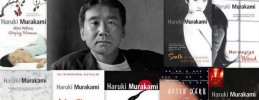
What is a writer? The immediate definition which springs to my mind is that a writer is someone who is used to being rejected. The only people who are constantly rejected as in, ‘Thank you but no thank you, not this time,’ are writers.
Stella Whitelaw in her book How to Write Short-Short Stories (Allison & Busby Writers’ Guides 1996) says, ‘How the heart falls with each rejection. That thud on the mat, the echo of doom. It makes no difference how many stories you’ve had published or the books already on the library shelves, a rejection slip is still a small dagger in the heart.’
Ignoring the facts that most writers no longer ask for their manuscripts to be returned, that library books on shelves might not be our dream and, most pertinent of all, that most of us have not had the happy experience of having ‘many stories’ published, I suggest that we can agree with Stella that the heart falls with each rejection.
My first exploration into the world of being a writer and, maybe, being published was when I wrote a short letter to The Times aimed at that bottom right hand corner of the letters page. And guess what? My letter was published. So far so good. My second foray into the wider world of publishing was to send a short, genre novel to Robert Hale. That book was published as a library book for grannies (no sex, please, we are too frail). A rising star, you might assume. If only. I won’t trail you through my long, despondent list of blockbuster novels, Catherine Cookson look-alikes, Aga saga Joanne Trollop style novels, and traveller-through-Europe-with-the-odd-sexual-encounter-on-the-side non-fiction books as they were all rejected.
What has this to do with short stories, you ask? Nothing, except that it was with one short story that I was, eventually, accepted. Not a great deal: a horror story, for want of a more specific description, accepted by a small publisher. Aha! My CV can now display the words ‘Published’ with the title of the publication and a date. Like a real writer.
By this time I also had a collection of ‘not to be thrown away’ rejection letters. My favourite is from the BBC (yes, her aunty-ship herself) saying that it was great that my short story was shortlisted among 60 other stories but, hey! that was from a long list of over 600 and so sorry they didn’t want my story in the end but as they were only broadcasting 3, yes 3! it was hardly surprising mine hadn’t made it. Please send in again, we would be pleased …
You get the picture. Always look on the bright side.
I have a Mslexia diary. One of the features of this diary is a couple of (four actually) pages entitled ‘Submissions’. Here is a column for the title of the piece, for the competition or periodical submitted to, the date submitted and the response. Here is where I write, in the same pen, in the same way, rejected, rejected, rejected. A recipe for suicide perhaps?
But no. Because I am a writer, because to be a writer I must be both demented and ever optimistic, because I own that ego which drives me on even when common sense tells me to give up, every rejection is a challenge. Never mind I say. Just as well I have that story back because now I can send it to that other competition next month. Never mind, that was not the ideal place for that story, anyway. If I send it to so-and-so and if I win…
And so it goes on.
Now I am about to submit my dissertation for my MA in Creative Writing. When I have finished it, that is. As I write this blog, the deadline is looming and I am still buying books on Amazon in the hope they will provide me with quotes to support my approach to my writing. This time, I cannot be rejected. I have paid my fees and therefore I must be read, appraised and rewarded with letters after my name.
And what then? There is no other way but to finish my novel, to send it out, to be rejected. In the meanwhile, I will revert to my short story writing, to sending out my manuscripts and being rejected. The upside of short story writing is that it is short. And it can be easily rewritten to be submitted again. And that there exists a long list of competitions which are eager to receive stories. (If you do not have such a list, email me. In a moment of sheer despondency, when all writing energy had abandoned me, I compiled one.)
There is no conclusion to this personal history of rejection, only that it seems to be the writer’s lot. It goes with the job; you get used to it. Until that wonderful day when you receive a letter which says, ‘We would like to publish…’ or ‘Your short story has won …’
Until that day, dream on – for it is of dreams that stories are made.


I’ve found that it can help with staying afloat in an ocean of rejections if you always make sure that you have several submissions “out there” at any one time. With simultaneous submissions generally being frowned upon, this is obviously a bit easier for short fiction writers than it is for novelists. This means that if you do receive a rejection for a story, at least you always know that there’s something else currently pending a response which might be more successful.
As Phil points out, judgements on fiction are very subjective. So just because one editor or judge hasn’t seen fit to select your story above all the others received, it doesn’t mean that it won’t find favour somewhere else. The first story of mine that was broadcast by the BBC had already been rejected in several other, less auspicious, places. This year I’ve placed a couple of flash fictions that were enthusiastically received by their publishers after being roundly rejected elsewhere. In one case, I was spurred on by comments in a previous rejection to alter the ending, so something positive came out of all those rejections.
I once persuaded a friend of mine to enter a story into a competition run by a national newspaper, despite the fact that it had been unsuccessful in the same competition in a previous year. My rationale was that it was still the best story that she had to enter and that both of us thought it was a good story. On the second outing, presumably with different judges, it was judged to be one of the winning entries and published in the competition anthology.
The really tricky thing is deciding when to retire a story and realise that it either just “hasn’t got it” or that there isn’t any more that you can do (or are prepared to do) to fix its perceived failings. Sometimes I’ve probably made this decision too early and been surprised to find that the story’s successful when I haul it out years later and send it off “one more time.” Other times I suspect I’ve gone on flogging a dead horse for too long and should have given up and started submitting something fresher. Editors who take the time to offer genuine, detailed feedback on a story are invaluable in trying to make that difficult decision.
Rejected? Reaction is a substantial drop in blood sugar level reversed by an extra large Mars bar and wine glass full of sherry. And possibly a rewrite to include various suggestions from that particular agent. Rejected again? Two big cup cakes, a wine glass full of sherry and perhaps a glass of brandy. Maybe a rewrite reversing the last lot of edits and cutting all descriptive passages. A year later, rejection? A bag of donuts and a bottle of Amaretto. Totally new novel in different genre. Five years later rejected again? Overweight and overwritten. A more austere reaction is required, perhaps a pasta salad and some elderflower water. Change names of all characters and reverse all genders to give an edgy feel to the book, globally changing he to she etc etc. Cut all adjectives and adverbs. No paragraphs longer than three lines. Ten years later, rejected again? Postage is so expensive. Therefore sending it out to anyone who’ll take email submissions. Back on the Mars Bars and wine glass full of Don Nico. Maybe chop it up into sixteen short stories to make good use of words. Ten years later….
Any writer who has sent anything for publication understands the idea of rejection. Yet I think writers are “constantly” rejected because they send the most material for publication and because of subjectivity.
Someone who sends out one short story/play/poem a week for a year will have sent out 52 articles, which represents 52 chances of rejection. It’s the numbers game: actors who audition for roles are rejected; people who attend interviews for jobs are rejected; and anyone who has asked someone out for a date knows the immediate pain of rejection. But I doubt actors or job seekers or singletons are rejected 52 times in one year.
Writers are also rejected because writing, as with anything to do with the arts, is subjective. Anyone applying for a job using a CV will have a list of applicable qualifications and experience, so subjectivity (on paper at least) should be minimal. Yet show the same short story to ten people and the responses will differ. When some people love characters but others prefer metaphor or symbolism, is it little wonder that writers suffer rejection? Even giants of writing such as Dickens or Hemingway have never satisfied all their readers.
To compound matters, reviewers and agents seem to be searching for the Next Big Thing and sneak off from risk; Harry Potter becomes popular and suddenly there are countless Potter clones in the bookshops. This convention plagues other arts. Hollywood seems to employ a timid approach to making films based on what was popular the previous year, so that the pattern becomes one of copycat, such as the conveyor belt of Vietnam films in the 1980s, the ghost and Dracula films in the 1990s and now (yawn) the resurgence of Dracula.
To reduce rejection, the writer can send out none of their material. If they feel the compulsion for a nugget of fame, all writers should write to the best of their ability and resist the urge to send anything out for publication until their material is 100% (in their eyes, of course).
Surely one reason we suffer so much rejection is that we send out material prematurely?
An interesting thing about rejections, and Stephen King touches on it in his book ‘On Writing’, is that sometimes they come with an encouraging comment, an analysis even, of what’s good or bad (in their opinion) about your piece of writing. Of course some editors do this over and over again (you know who I mean!), until you get so frustrated that you fire off a piece that isn’t even a submission, but just to assert yourself, which they take (yes, you!). But, it’s very rare, in my experience, that an acceptance slip tells you anything about why they’ve accepted you! …perhaps I simply haven’t had enough of them.
Thank you for your article. I can totally relate; right now I’m on a high because I’ve gotten positive feedback but I better not get used to it. Still, expect the unexpected and take a leap of faith. What else can we do?